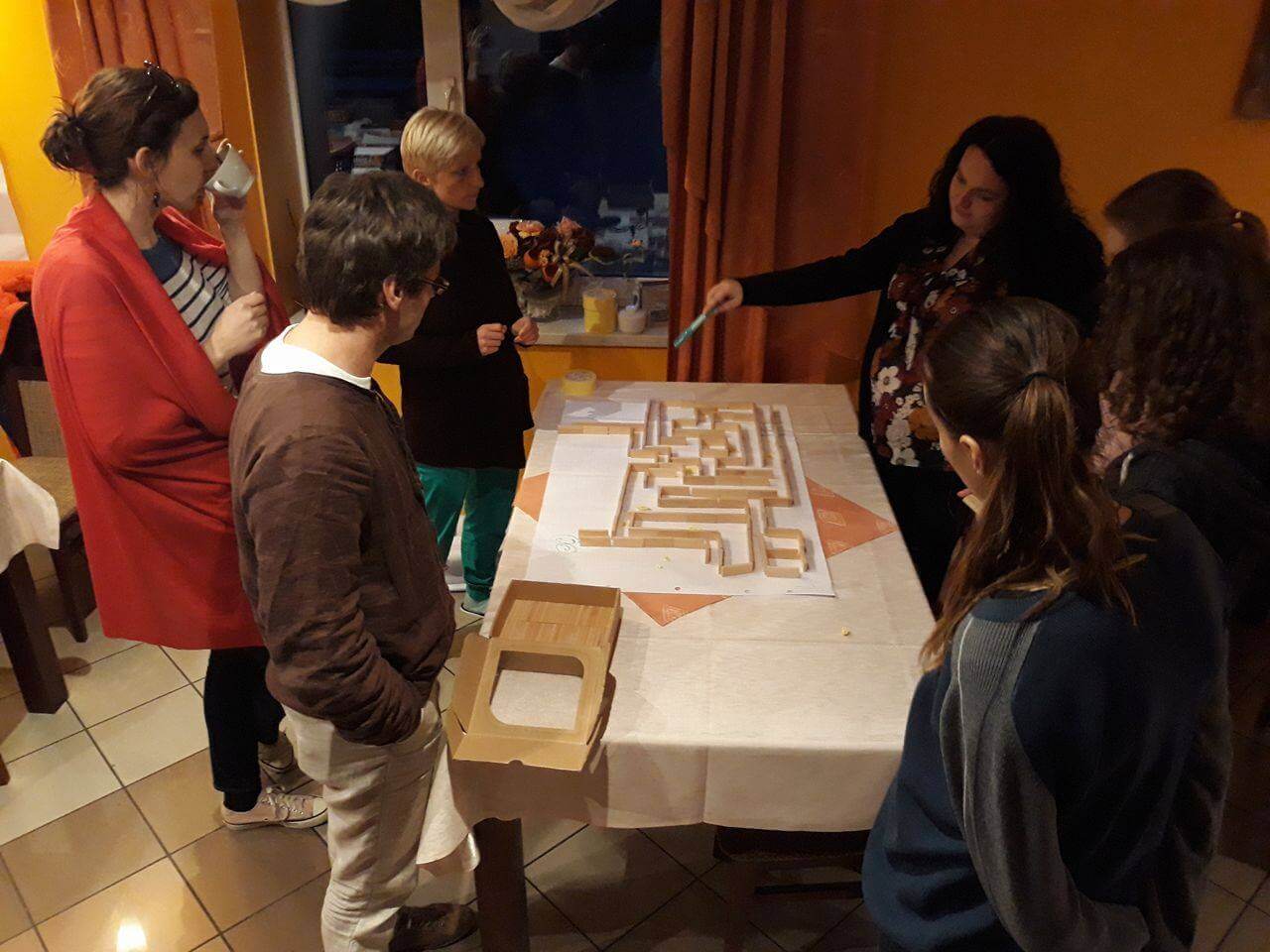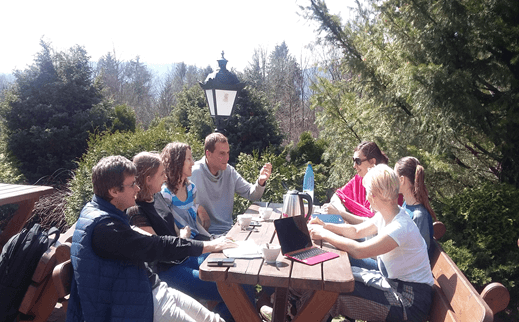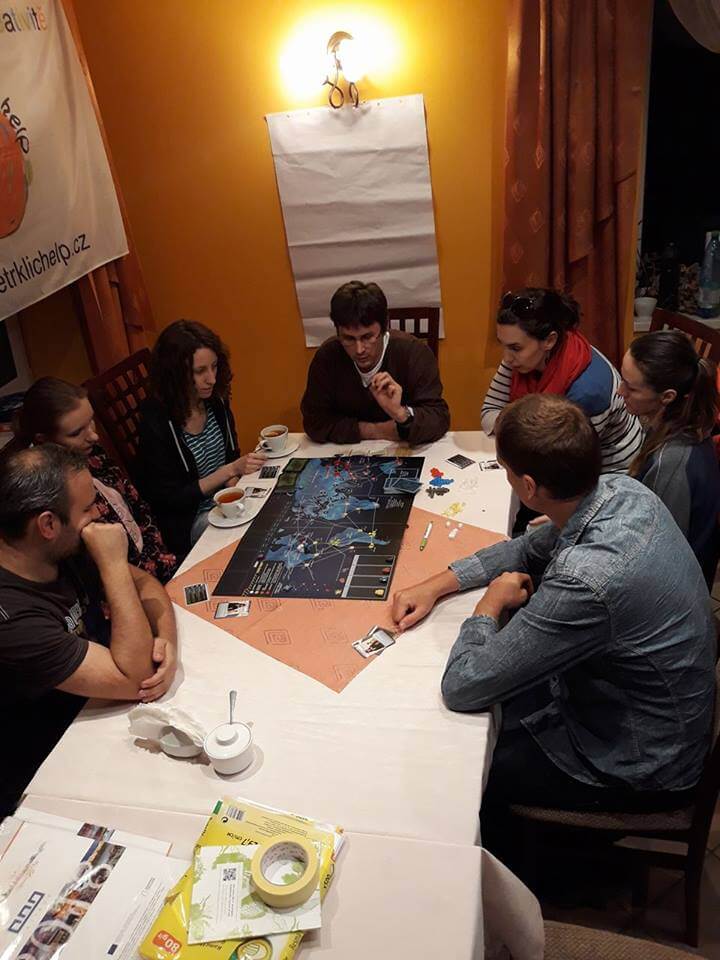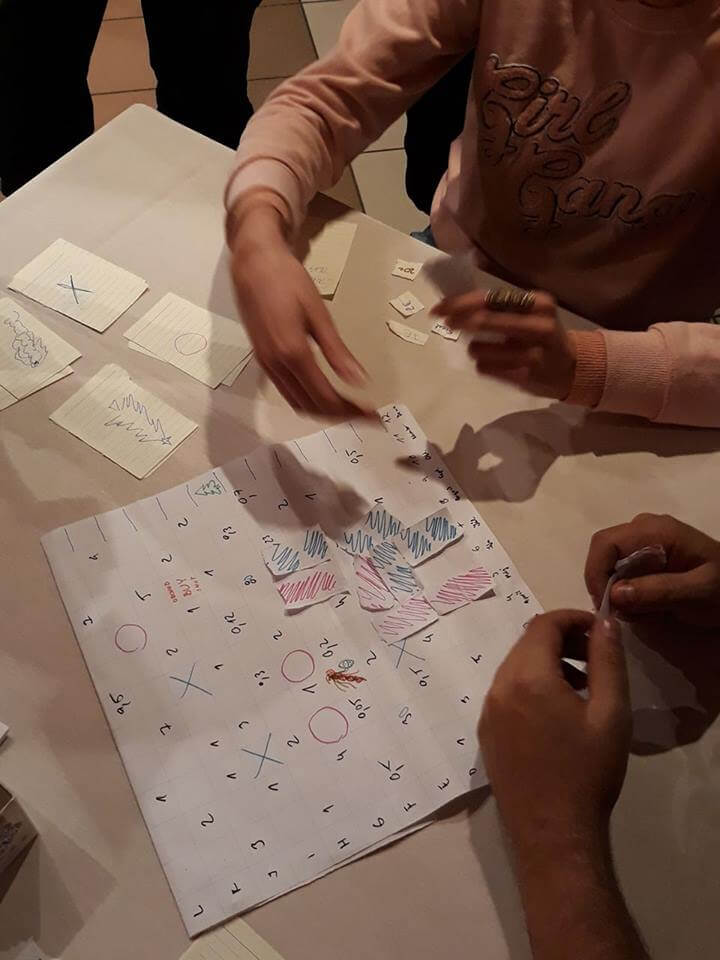Contribution made to the project by partner organizations.
All participants had more or less contact with board games. The Slovak team works every day in primary school, where they have constant contact with children. They are aware of their needs and their manual and intellectual abilities. As a school, they can combine formal and informal education, they are in daily contact with children (8-10 age) so can better understand requirements that should be met when creating a game. They can also react flexibly during game design because can test each component of the game directly with the target group. Participants from the Czech Republic have experience with international projects, which facilitates cooperation, communication and marketing. They are plenty of idea. The Polish national team has the most experience regarding the cosmetic improvements of the game as well as the knowledge of the modern market of board games.
Actions have been taken to assess to what extent the first meeting contributed to achieving the assumed goals and results
First meeting was aimed at getting to know each other, to discuss and find out our expectations from the project. During the first meeting we gained the basic theoretical and practical knowledge about a topic. We could see a lot of examples of board and social games, different kinds of interesting components we can use in creating our game. The organization of the meeting was at a very good level and now we have clearer idea how to achieve the project goal
The first meeting also focused on getting to know each other and realizing our strengths and weaknesses. For this purpose, games involving imagination and ingenuity as well as teamwork were used. As a result, the language barrier was broken and communication became more fluid
How the planned activities have been organized/ working methods
We followed the daily programme and discussed together all planned activities. We applied different kinds of methods: teamwork, icebreakers (to know each other), discussion, methods of informal education, presentation, learning through experience, practical training, brainstorming
The most important pillar of the whole workshop was the discussion. Thanks to the mutual exchange of experiences gathered in various areas of life, we could learn a lot from each other. A good opportunity to communicate were evenings with board games, when on the occasion of the game we were able to see the mechanics used in individual games.

The impact of the project on participants, participating organizations, target groups and other stakeholders
Each participating organizations had a chance to learn what methods to use when creating games thanks to a professional interpretation from the people who have already created games, created network cooperation with students who organize playing events and are representing passionate and experienced playing group. Thanks to this opportunity we could see, experience and learn of which phases the creation process of successful game consist. Group of teachers was able to express model and real life situations to approach the problems of the target group. The result was exchanged contacts and creation of FB Group to exchange further ideas.
The project allowed to extend partipcants horizons. They realized that the language barrier is not an insurmountable obstacle in the case of international cooperation. Participants from different age groups and environments can complement each other’s ideas for the game. They also allowed to make friends, both socializing and business.
Guidelines and tasks of the organization related to preparing for the next meeting
The readiness to cooperate was visible from the perspective of each participant. Each team with enthusiasm shared ideas, which partners we can invite to further cooperation. After the workshop in Brenna, contact with the participants has not been broken, but continues to develop.. The next stage is to improve the design of your game in such a way that at the next meeting you can present the ready prototype. This will be done by testing the game on the target group.





